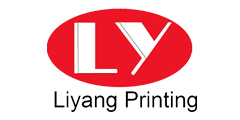2.4 Water and ink balance
2.4.1 Meaning of Ink Balance
At a certain printing speed and printing pressure, adjust the amount of liquid supply; with the smallest amount of water and the ink on the plate to counterbalance; ink to form a water-in-oil emulsion, the wetting liquid content between 15% -26%. Under normal circumstances, ink layer thickness 1-3u, water film thickness 0.5-1 dish.
2.4.2 Ways to use the minimum amount of water
Use surfactants or alcohol wetting fluids to reduce the wetting fluid surface tension. If Yo represents the surface tension of the ink, Yw represents the surface tension of the wetting fluid. When Yo>Yw, the wetting fluid infiltrates the ink and the emulsification increases;
2.4.3 Ink Emulsification is Inevitable
The two phases of the ink and the wetting liquid are immiscible, the two phases contact each other, the water roller and the printing plate are pressed, the wetting liquid enters the printing plate residual ink: the ink roller presses, the wetting liquid squeezes into the ink roller surface ink Layer: The ink roller and the printing plate are pressed, the graphic is sticky and wet, the beads are squeezed into the ink layer, and finally the ink is emulsified.
2.4.4 Ink emulsification; can be missing
If there is no ink emulsification, there will be water droplets on the ink roller, resulting in white flecks, ink roller deinking; ink droplets on the water roller, water transfer performance decline, poor ink transfer performance. With the ink emulsification, the viscosity of the ink is slightly reduced, the flow properties are improved, and the transfer of the ink is facilitated.
2.5 Printing pressure
The printing pressure refers to the pressure on the embossing surface of the embossed body during the ink transfer process.
2.5.1 The role of printing pressure
The role of the printing pressure is: to achieve complete contact with the printing surface; to overcome the ink molecular attraction, enhance the substrate adsorption of ink; accelerate ink absorption and promote drying.
2.5.2 Printing pressure representation
Printing pressure can be used for drawing pressure (N/m', N/cm2 or Pa, 1Pa = 1 N/m2), line pressure (N/m, N/cm), and embossing surface width [B=2 (X in)", R - The drum radius; In - the lining compression deformation and other methods to represent.
2.5.3 Determination of Printing Pressure
The pressure at which the thickness of the ink layer transferred to the paper is in the optimum range is called the ideal printing pressure. At this time, the imprinting is adequately transferred without exceeding the standard. The ideal printing pressure can be determined experimentally, that is, the fp (ink transfer rate - printing pressure) curve is made and the ideal printing pressure is determined.
In the case of ensuring ink transfer, the lower the printing pressure, the better.
2.6 Rubber Roller Lining
The blanket and padding that covers the surface of the blanket cylinder are called blanket cylinder liners and are classified into three categories based on hardness.
2.6.1 Hard Packing
The total thickness is not more than 2mm, the contact width is small, the compression deformation is small, the printing dots are clear, the registration is good, the printing plate is easy to be worn, the requirement for the precision of the machine is high, and the ink bars are easy to produce. Hard liners are generally suitable for high-precision printing presses and fine prints.
2.6.2 Neutral Packing
The total thickness is 3-3.5mm, the contact width is small, the compression deformation is small, the printing network is clearer, the registration is better, the wear of the printing plate is not large, and the precision of the machine is not high.
2.6.3 Soft Lining
The total thickness is more than 4mm, the contact width is large, the compression deformation is large, the printing dot is greatly deformed, the printing plate is worn less, and the requirement for the machine accuracy is low. Suitable for low-precision printing presses, printing requirements are not high print.
2.7 Offset Printing Technology
Offset printing presses are common offset printing presses and automatic offset printing presses.
(1) The 3rd Generation Digital Register Analyzer (DRA): Accurately registers a sheet-fed offset press in the micrometer range.
(2) Wetting Balance System: Maintains consistent wetting fluid supply throughout printing.
(3) Closed-loop technology: The automatic detection device automatically controls the ink and ink adjustment, quickly achieves the ink-water balance, and greatly reduces the scrap rate.
(4) Spectrophotometer control system: Online control of image color.
(5) Digital printing system: The data generated by the prepress system is automatically transmitted to the printer, and single-piece printing and network printing can be performed.
1) No-print digital printing machine
Under computer control, the ink is sprayed onto the plate cylinder, transferred to the blanket, and transferred to the substrate. Special inks and special devices ensure 100% ink transfer and are printed in one week. This printer is characterized by on-demand printing, single-piece printing, and network printing.
2) There is a plate digital printing machine
Under the control of the computer, the use of electric sparks in the printing plate carved small pits for the graphic part, the blank part of the ink-repellent material, the use of anhydrous offset printing. This type of printer can be used for long and short runs.
2.8 Waterless Offset Printing
The lithographic printing plates used for waterless offset printing are mostly positive type, aluminum plate base, adhesive layer (0.5-1u), photosensitive resin layer (3-3.5L1), silicone rubber layer (2L1) and cover film (6u) composition. The copying light source is the same as the PS version. During the printing, the silicone layer of the graphic part was not exposed to light and was washed away. The photosensitive resin layer was not exposed to generate an ink-receptive layer. The blank part of the silicone layer was exposed and hardened to form an ink repellent layer. Waterless offset inks have affinity for graphics and are repellent to silicone.
Waterless offset printing features: no wetting fluid, fast drying: no emulsification problem; ink layer is thin, equivalent to 60%-70% of PS plate: overprinting is not as good as printing with water; the back is less dirty: the printing quality is good, Reproduce 2% N98% of outlets; simple and easy to grasp. The operating environment is demanding, the temperature is 23~C-25~C, the humidity is 55%-60%, the temperature is lower than 18~C, the ink is solidified, the ink is blocked, and the temperature is higher than 26~C. It is difficult to remove dirt from the dirt: the price of printing plates is high.
Waterless offset printing is suitable for printing small-lot, multi-variety, high-quality, short-term prints.














